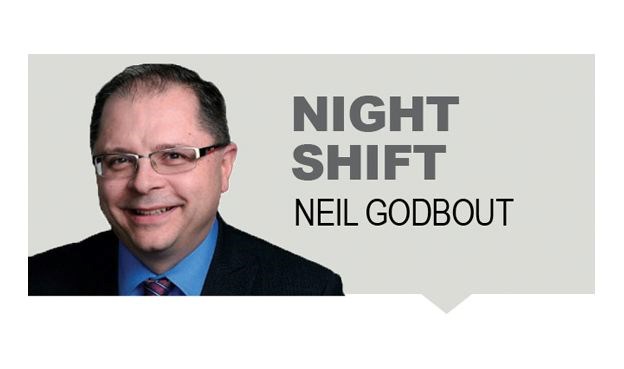I put a note on Facebook on Friday morning asking for readers to drop me a line on what they're doing to keep themselves safe during the COVID-19 crisis.
I loved this response I received from Susan Jensen:
"Here is a general idea what my day is like. I am a 72 year old senior.
1. Get up and prepare a good breakfast and watch the news and read Citizen online.
2. TV Is turned off at 9 a.m. unless there is something urgent we all need to know about.
3. Go for a brisk walk around my neighborhood, implementing social distancing.
4. If horrible weather, I do exercise at home
5. I clean all bathrooms, kitchen, doorknobs, fridge handle, microwave etc. I do this often and I wash my hands a lot.Clean towels every day for husband. I change sheets every 2 days.
6. After general housework is done, I read, write or work on my boxes of photos.
7. I prepare lunch and relax by listening to radio, Facebook, answer emails or messages.
8. In the afternoon, I rest and watch some TV.
9. Quick walk around the townhouse then home to prepare dinner.
10. Evening is spent TV, reading, writing and connecting with family and friends.
11. I go to bed early as rest is important but before I do I feel blessed and hopeful family and friends will weather through this and will be OK.
Sending wishes to you and your family."
Thanks, Susan, and all the best to you and yours. You're setting a fantastic example of how to keep yourself safe and how to protect others from getting sick.
I wish my youngest had a better handle on how to conduct herself. She's 16 and fiercely independent (or know-it-all rebel, depending on your viewpoint). She's also a social butterfly who deeply values her friendships, so social distancing and self-isolating when possible seems like a cure worse than the disease in her world.
We compromised on Thursday night and allowed her to have one longtime friend come over. Unfortunately, as parents with teenagers know all too well, an inch given quickly turns into a mile taken. My wife and I both went to bed early. Unbeknownst to us, the visit with the friend became a sleepover.
And so the hammer has come down. Friend visits are now off indefinitely.
Considering her older brother has a heart defect, that's a responsible course of action at the present moment. Unfortunately, there is no vaccine for COVID-19 or the equally dangerous condition I call TEEN-16.
Teenagers of all generations, past and present, have little to no grasp of risk. I've often wondered why high school math courses don't use more risk-benefit analysis models to give real world significance to mathematic concepts.
Question 1: There are 100 candies in a bowl and one of the candies is poisonous and will kill you. Would you take a candy and eat it? Explain mathematically why or why not.
Question 2: You and the other 19 students in the class have to each take one candy. Should you all eat your piece of candy? Explain mathematically why or why not.
Question 3: Repeat questions 1 and 2 but instead of one poisonous candy, there are 7, 17 and 77 poisonous candies in the bowl.
Question 4: Repeat questions 1 and 2 but with one thousand, one million and one billion candies in the bowl.
Question 5: With your mathematical answers to questions 1-4 in mind, add the following benefit: if you eat a candy and live, you receive a million dollars. Does that change any of your answers? Why or why not?
Nicholas Nassim Taleb, the curmudgeon intellectual and author of Black Swan and Antifragile, wrote this on Twitter on Feb. 23: "When paranoid, you can be wrong 1,000 times & you will survive. If non-paranoid; wrong once, and you, your genes, & the rest of your group are done."
Taleb's point is that paranoia can be healthy and calculating the mathematical odds of an outcome has nothing to do with calculating risk. His prudent answer to all five questions would be absolutely not because death as a potential outcome is so catastrophic that it negates any and all benefits, regardless of the odds (and presuming you value your life above candy and money).
Put another way, the current odds of getting sick with COVID-19 are exponentially higher than winning the lottery while the potential negative consequences are far more serious with COVID-19 than the money wasted on a losing lottery ticket. There's a big difference between betting a few dollars and betting your health and your life.
To be fair to my daughter, there seems to be a lot of TEEN-16 going around right now. Too many people are calculating the odds of getting sick and dying of COVID-19 in Prince George and area (never mind spreading it to others as well) as if it's a lottery they have no chance of winning.
COVID-19 isn't a game of chance. It's a life and death scenario, especially for seniors and people with pre-existing health conditions.
Susan Jensen is playing it smart, both for her benefit and for the benefit of others. From a risk standpoint, everyone wins.
Let's all follow her example.



